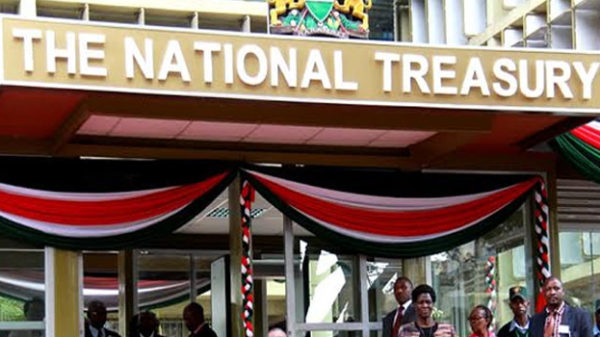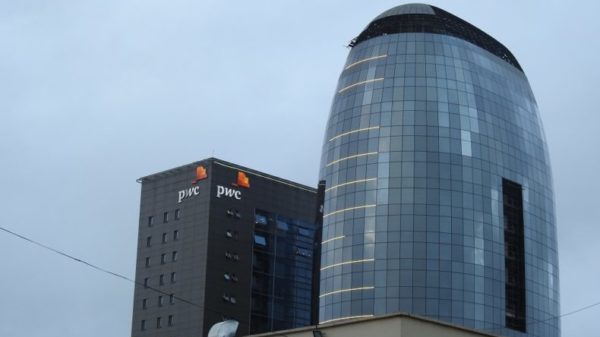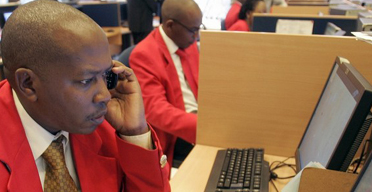NAIROBI, Kenya, May 14 – Many investors have lost billions of shillings in the stock market slump since early last year. While many factors have been blamed for this phenomenon, fingers have been pointed at the bad governance within the stockbrokerage fraternity which has resulted in the erosion of investor confidence.
Capital Business recently had a one-on-one with the Kenya Association of Stockbrokers and Investment Banks (KASIB) Treasury Job Kihumba to find out the associations views’ on what is going on in the capital markets.
Q: What plans does KASIB have to improve the investing environment?
A: There are many plans that we have for the next few months and one of them is to enhance the code of ethics and conduct for members.
Some few weeks ago, the NSE (Nairobi Stock Exchange) wrote a code of ethics for members of the exchange, and KASIB has been in the process of making it more detailed. In the near future, this code will formally be launched so that all its members can start using it for their day to day activities.
Q: What are some of the challenges facing stockbrokers and investment banks and what are you doing about it?
A: One of the things that have hurt members is fraud, but we also arranged to have a workshop on how to detect and deal with fraud when it occurs. We want to ensure that the members are better placed to respond to challenges in the industry.
Q: There have been accusations that stockbrokers back office operations are lax? Is it true and if so, what are you doing about it?
A: We admit that the systems that operate our back office are weak and that is why fraudsters were able to infiltrate. We are working closely with the Nairobi Stock Exchange (NSE) to develop a common platform for back office which will be linked up with the Automated Trading System at the Central Depository and Settlement Corporation.
This will help in the monitoring of what members are doing; audit trails will be easier, it will be easy to trace fraud because of it does not take place within one office. Fraudsters use three or four firms to hide their tracks and so if you have such as platform, itwill be easier to track the trail.
But the back office will also help improve efficiency right across the membership. In future all of us will be able to respond fairly quickly to challenges that may appear in our firms.
Q: What about investors? Do you have any plans for them?
A: Yes, we are planning on educating them on the workings of the capital markets. They say educated investors are safeguarded investors. When they have knowledge, they know they cannot be easily manipulated by anyone and they make life better for everyone.
For example, when somebody knows what to do and walks into your office it’s very easy to communicate because he understands your language, he understands what’s an order, when to pay for it and at what point he becomes the owner of the securities. These are issues that are in the interest of all members that all investors are in the know and therefore KASIB is looking at working with the CMA and the NSE in investor education.
Q: How will you do that?
A: We have not worked out the modalities but we have agreed in principle that that is something that needs to be addressed urgently.
We also want to educate members through organizing courses and programs for them.
Within the next one month or so, we will have a generic one-day course on corporate governance for members.
Q: What impact do you think these measures will have?
A: After this the industry will be much stronger than ever before. But let me also say that in no industry any where in the world will you have 100 percent guarantee that they will be no failure. Even in the USA which has the most comprehensive set of regulations in the capital markets but that did not stop some of the most progressive and strongest companies from coming down.
So you do the best you can, provide an environment where the players act fairly and efficiently. But there will always be circumstances that may warrant the dysfunction of one or two members.
Q: There have been rumours of strained relations between stockbrokers and investment banks and the CMA? Has that been addressed? What kind of a relationship would you like to have with the regulator?
A: We would want to see continuous consultations because we are conscious of the fact that rules and regulations are not an end there are a means. Any rule that is formulated must be practical. We don’t want regulations that are impossible to implement and we have said this in no uncertain terms.
For example, there are proposals that were made and enacted into law last year that stockbrokers should increase their capital from certain figures to certain figures of a period of 12 months. There were also limitations on shareholding. As KASIB, we agree with this but this requires time and so we have an issue with such rules.
Q: We have recently seen the entry of commercial banks in the stock market. Does this poise a challenge for the players?
A: While this is a difficult issue to solve, experience tells us that it’s always difficult to regulate when you have players coming in under different guidelines because on impacts on the other. For example, banks are regulated under the Banking Act, if they are players in the capital markets, then there will be regulated under the CMA Act and if they go into insurance, they will also be under the Insurance Amendment Act.
So you are having one organization being regulated by three different bodies which would definitely cause some conflict and confusion.
So what we are saying is that until we have better and clear cut regulations that cut across the entire financial sector, we don’t thin we are ready for this. We are in a liberalized economy and it is difficult to tell people not to get in a certain industry, but you have also to consider the regulatory regimes that they operate in and therefore it’s our feeling that it may serve us better to keep them separate.
Q: We have in the last few days seen a slight improvement in the market? Is this a sign that investors are coming back to the market?
A: Investors are still jittery. In the month of March and April we have seen substantial gains in the region of 10 percent which is not bad but would want to see 20-25 percent growth. People are still shy.
Q: Why is this so?
A: There’s one thing that people are failing to see. The political environment has contributed more to the failure of the resurgence within the capital markets than the capital markets itself.
A lot of people are not investing because they feel jittery about the political climate. This is particularly true for foreign investors who say ‘I’d want to buy but what do you think will happen at the political front?’
If we had less bickering, I’m sure the markets would pick up much faster. KASIB is through a bigger umbrella body like KEPSA (Kenya Private Sector Alliance) trying to engage the government to discuss some of these issues.
























